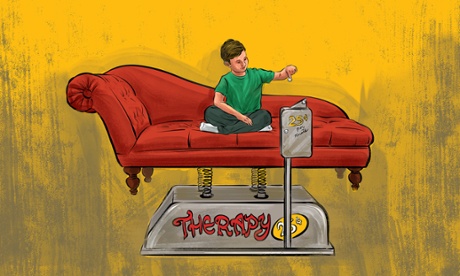
This is one of seven interviews with young professionals about their experiences with therapy and its costs. Read the rest here.
About half a year ago, Matt decided it was time to go back to therapy.
He has been struggling with depression since he was 12 years old, when he saw a psychologist and psychiatrist for the first time. “I had a really rough time in middle school,” he says.
He stopped a few years later, then started again – going to a counselor at his church – when he was 15 until he went to college. In his sophomore year, “things were really stressful” and Matt decided to take advantage of free sessions available through his school until they ran out.
For a while, he was held back by his own embarrassment.
“It is very important, if you need [to go to therapy], to do it and not be held back by the stigma, because I was for a while,” he says. “I was also held back by my own embarrassment: ‘why do I need to pay someone to listen to me?’”
After another break, he found a new therapist last year based on a recommendation from another therapist who wasn’t accepting new patients.
He had just started a new job in publishing, so asking for time off to see his new therapist was out of the question. Once a week after his boss leaves the office for the day, Matt packs up his things and heads to his weekly 6.15pm session.
“I intentionally scheduled it at 6.15 so that I would not have to be going during work hours and have to say why I was leaving, and that’s worked out fine,” says Matt, who feels uncomfortable disclosing he is in therapy.
Matt says he has found therapy helpful, but is often bothered by the fact that it is a business transaction.
I do find it helpful and I do find it important, but personally for me, there’s always this feeling – even when I have a great relationship with my therapist – I find it a bit strange that I have to pay someone to talk to me,” he says. “It just feels very exploitative in a way, because it’s paying for attention. It feels that way to me.”
Matt also is constantly aware of how detached his therapists have to be. “They do make you feel so comfortable, and I always feel like they care,” he says. “But they have God-know-how-many patients and they are seeing them day in and day out. We are not that special, ultimately.”
Matt is covered under his parents’ insurance, which pays 50% of the cost of his sessions, and his parents help him with the rest.
But if it came down to choosing between therapy and some of his other habits, he says therapy would be the first to go.
“It’s nice to have an impartial third party to talk to, but if it’s a difference between therapy and drinking or smoking or eating, I would probably choose any of the latter,” he says. “I’d probably give [therapy] up before a lot of things.”

